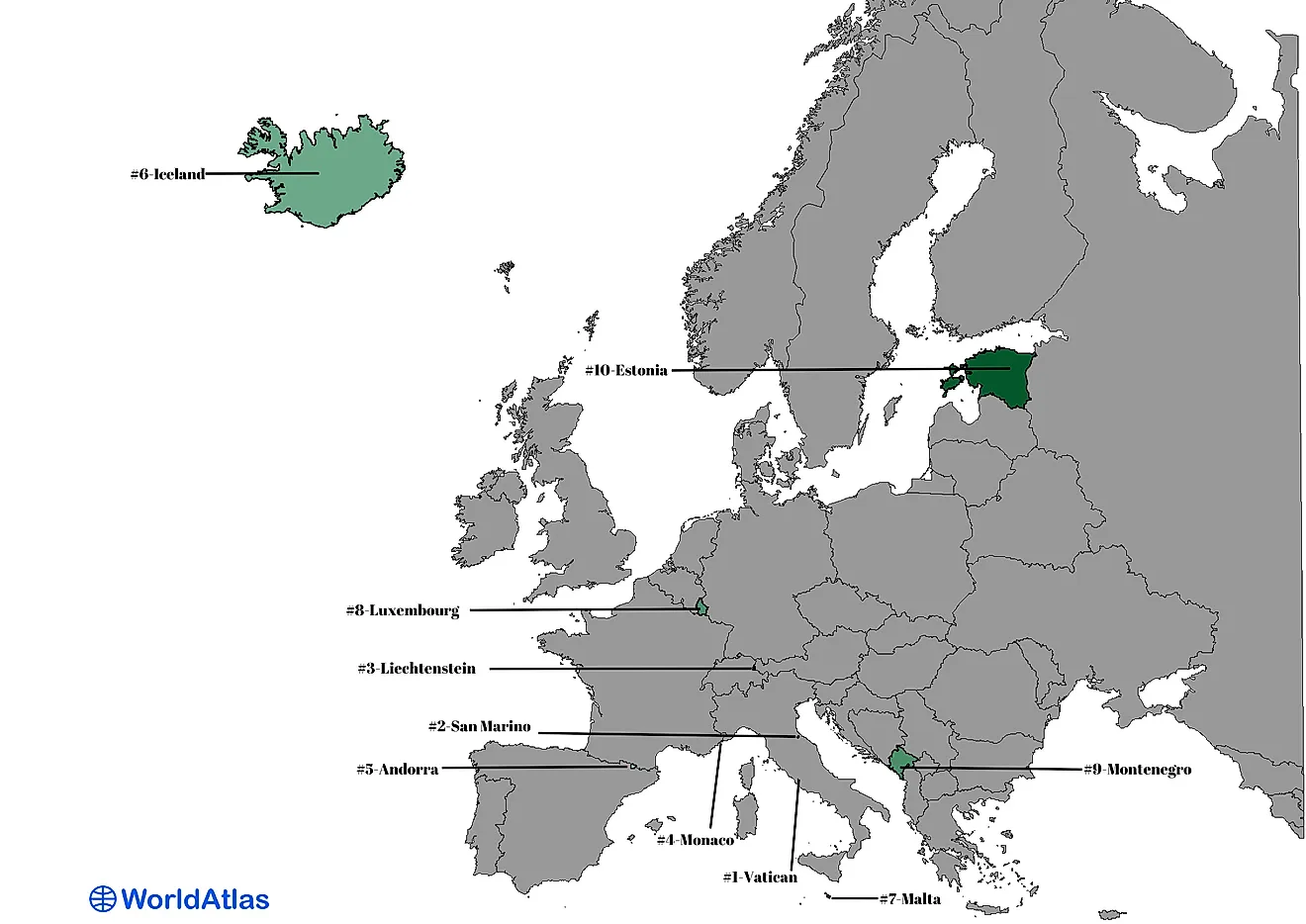Which Countries Still Have Monarchy
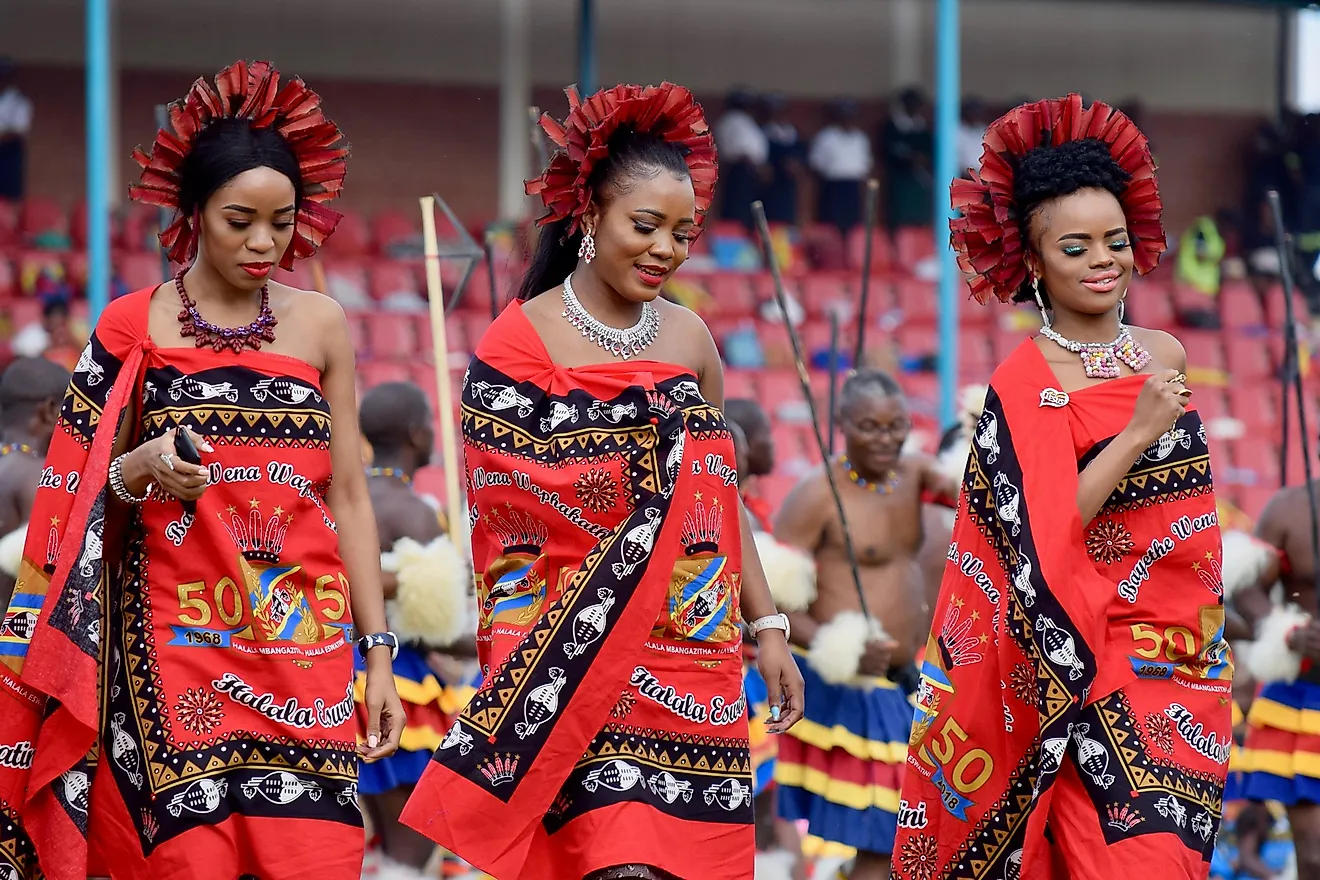
- Japan's Emperor was once revered as a living deity.
- Monaco has been ruled by the Grimaldi dynasty for more than seven hundred years.
- Nearly the entire Arabian Peninsula is governed by royals.
- The king of Malaysia can only rule for a five year term.
- Eswatini is home to Africa's only absolute monarchy.
There was a time where monarchs ruled most of the world. Today, the vast majority of countries are republics, though there are still a few countries that maintain monarchies. In some of these countries, the king and queen are simply figureheads with no political power whatsoever. In others, the royals still have a great deal of power, sometimes even absolute power. Here are some countries that still have monarchies.
The United Kingdom
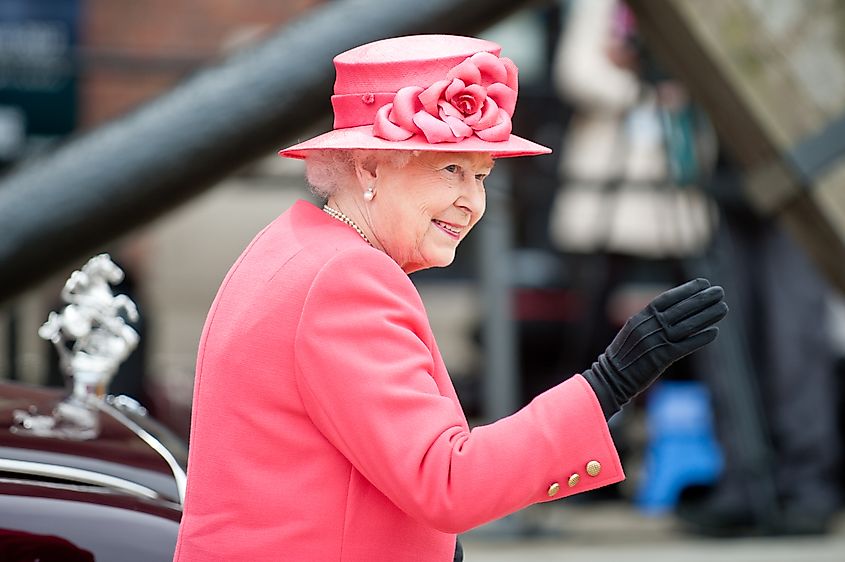
Queen Elizabeth II
The UK is home to the world’s most well-known royal family. Its current ruler is Queen Elizabeth II, whose reign spans over 64 years. Although nowadays her role is strictly ceremonial, the queen remains the head of state for the UK as well as many members of the British Commonwealth, including Canada, Australia, and New Zealand.
Netherlands, Belgium, Luxembourg
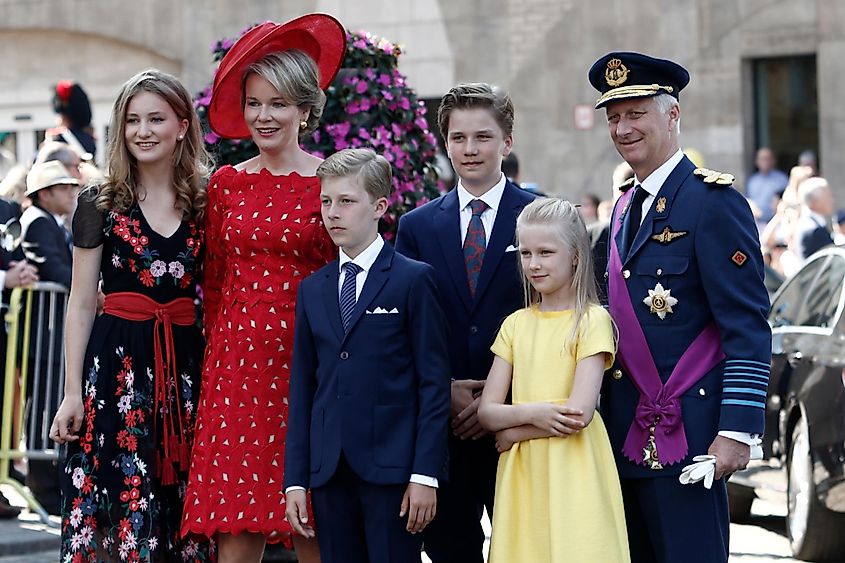
Belgian Royal Family
The Netherlands, Belgium, and Luxembourg, collectively known as the Low Countries, or Benelux countries, all have monarchies. The monarchs of all three of these countries are figureheads with no real power. In the Netherlands, the monarchy is known as the House of Orange and is currently led by King Willem-Alexander and Queen Maxima. Belgium is currently ruled by King Philippe, who was crowned the seventh King of the Belgians in 2013. Luxembourg is ruled by Grand Duke Henri. All three monarchies of the Low Countries were established sometime in the 19th century.
Scandinavia (Denmark, Norway, Sweden)
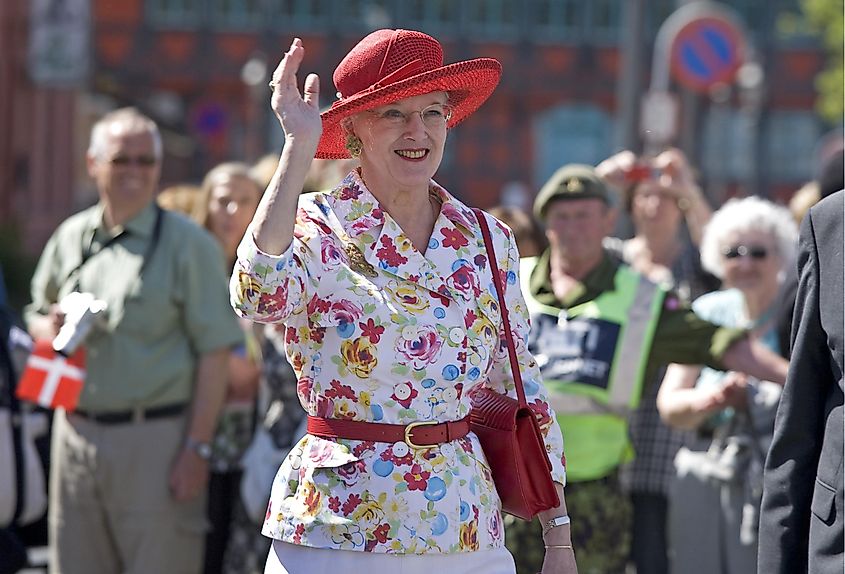
Queen Margrethe II of Denmark
Scandinavia hosts three constitutional monarchies, the Kingdoms of Denmark, Norway, and Sweden. All three monarchies are more than a thousand years old. The current ruler of Denmark is Queen Margrethe II. Sweden’s ruler, King Carl XVI Gustaf, is the seventh king of the Bernadotte dynasty. Norway has been ruled by the House of Glucksburg for 115 years and is now under the rule of King Harald V.
Monaco
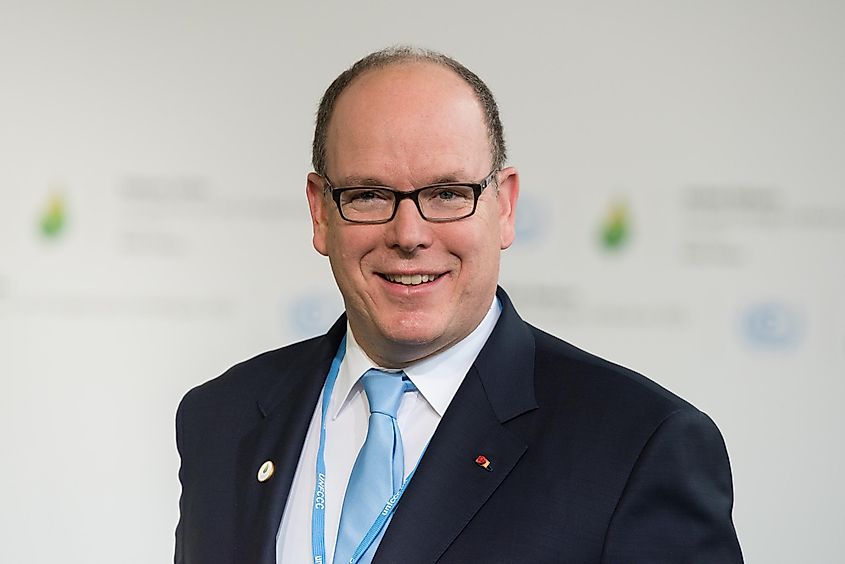
Albert II, Prince of Monaco
The tiny Principality of Monaco has been ruled by the Grimaldi dynasty for more than seven hundred years. The country is now under the rule of Prince Albert II, who, as the Chief of State, shares power with the country’s legislature, the National Council.
The Arabian Peninsula
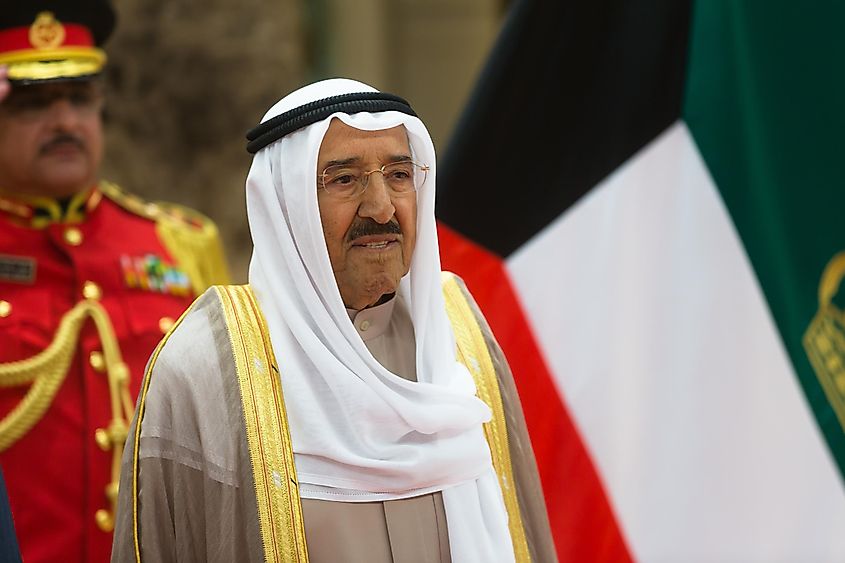
Kuwait Emir Sabah Al-Ahmad Al-Jaber Al-Sabah
All the countries situated on the Arabian Peninsula, with the exception of Yemen, are governed by monarchies, and in each of them, the monarch wields great, if not absolute power. Three of these countries, Kuwait, Qatar, and the United Arab Emirates, are ruled by monarchs known as emirs. Oil giant Saudi Arabia and the small island kingdom of Bahrain are both ruled by kings, while Oman is ruled by a sultan.
Malaysia
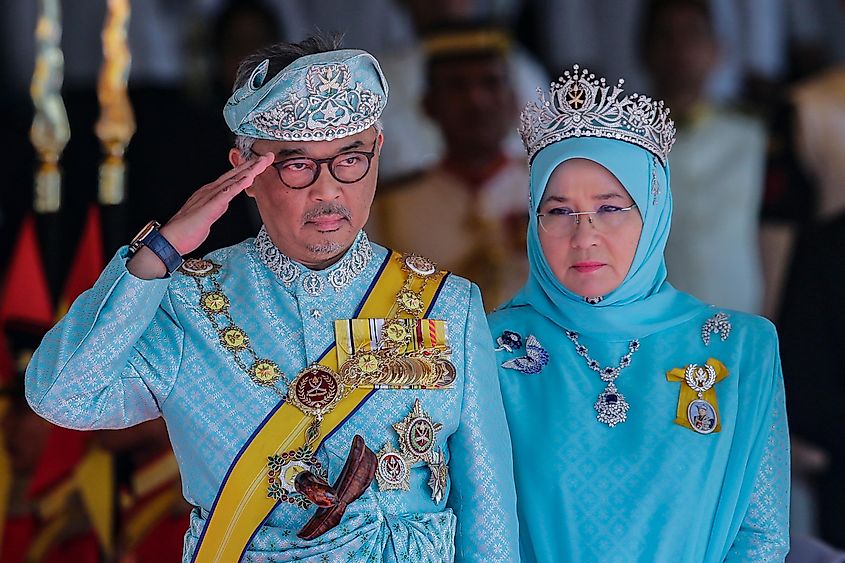
Malaysian royal family: Sultan of Pahang and Queen Raja Permaisuri Agong
Malaysia, situated in Southeast Asia, is home to a very unique constitutional monarchy. Unlike most other royals, who rule until death or abdication, Malaysia’s king can only rule for a five-year term. The position of king rotates among the hereditary rulers of nine states that are part of the Malaysian federation. As is the case in the constitutional monarchies of Europe, the Malaysian king has no real political power.
Thailand
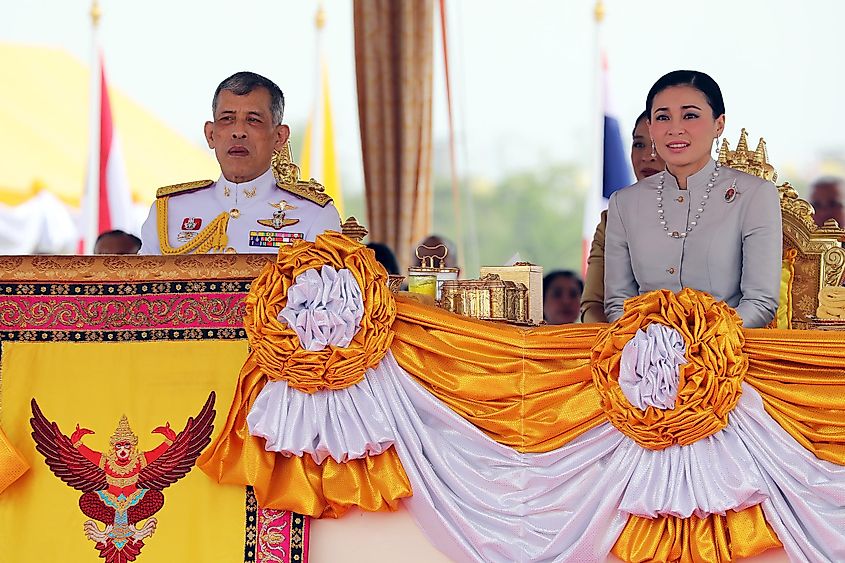
Thailand's King Maha Vajiralongkorn and Queen Suthida
To the north of aforementioned Malaysia is Thailand, which was once home to the longest-reigning monarch in history, King Rama IX, who ruled the country for seventy years, until his death in 2016. The Chakri Dynasty, of which King Rama IX was a member, has ruled Thailand since 1782.
Brunei
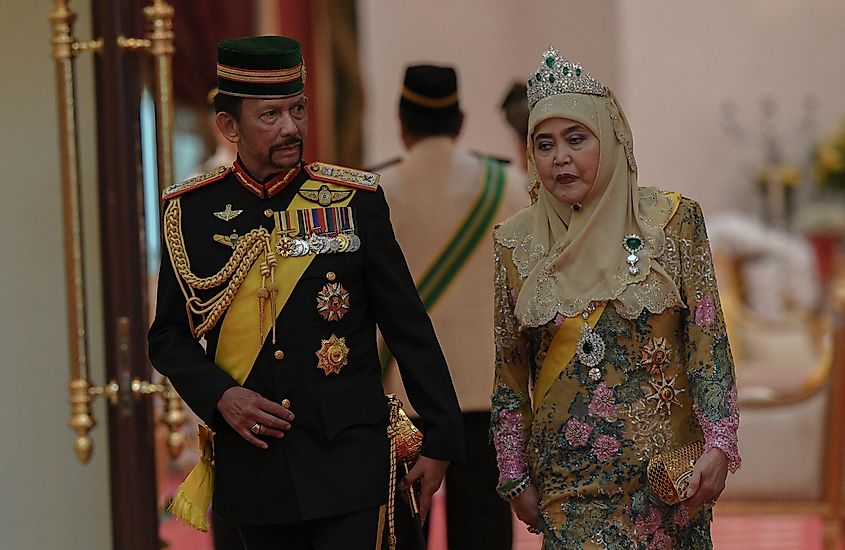
Brunei's Sultan Hassanal Bolkiah and Queen Saleha
Sharing the island of Borneo with Malaysia and Indonesia, the tiny oil-rich state of Brunei is an absolute monarchy ruled by Sultan Hassanal Bolkiah. There is no elected legislature, and as of 2014, the country has been governed by Islamic Sharia Law.
Japan
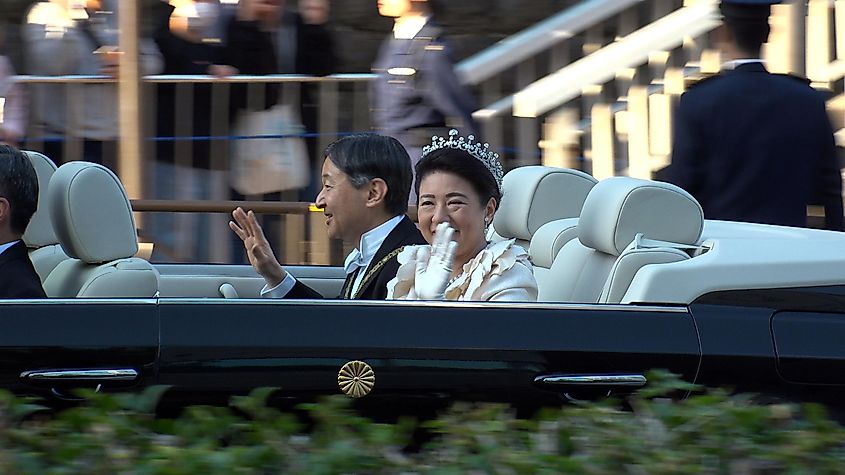
Emperor Naruhito and Empress Masako
Japan is home to the oldest hereditary monarchy in the world, dating back to the sixth century BCE. The head of the monarchy, the Emperor, who was once revered as a living deity, used to be the ultimate authority in the country. After Japan’s defeat in World War II, however, the Emperor was relegated to a figurehead. Current Emperor Naruhito ascended the throne in 2019, after his father, Akihito, abdicated
Eswatini
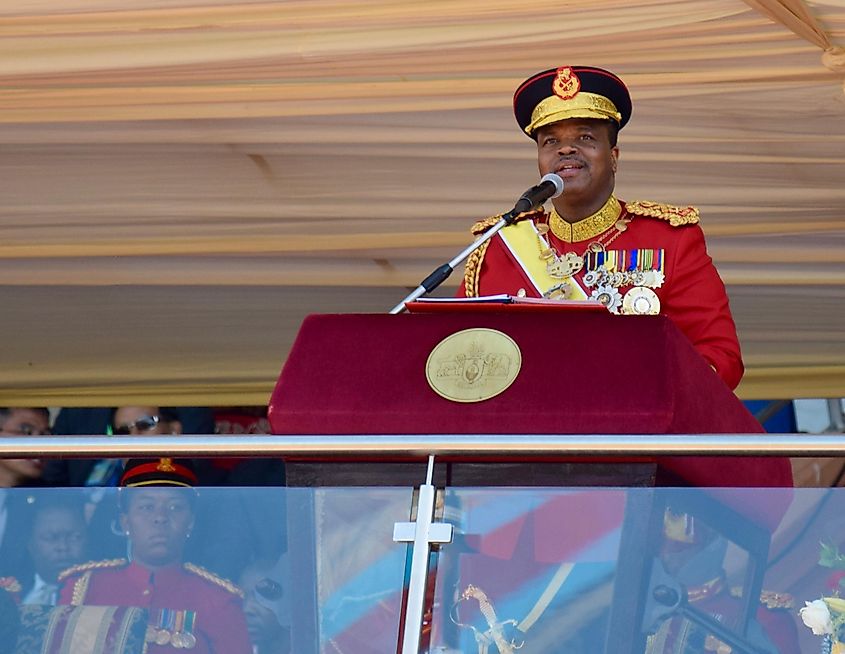
King Mswati III
Also known as Swaziland, Eswatini is home to Africa’s only absolute monarchy. Its current king, Mswati III, has total authority over the country. He has fourteen wives, each of whom has at least one child. The life of Mswati III and the rest of the royal family is strictly confidential. In fact, it is illegal to publicize any details of the king’s private life. It is known, however, that Mswati III’s family is very large. His father, King Sobhuza II, is thought to have had hundreds of children and thousands of grandchildren before he passed away. The monarchy is depicted on Eswatini’s coat of arms, with a lion representing the king and an elephant representing the Queen Mother, who acts as regent if the heir to the throne is too young to rule when he is crowned king.










